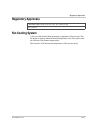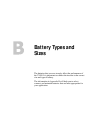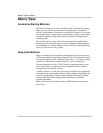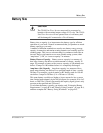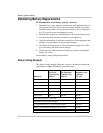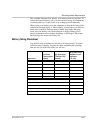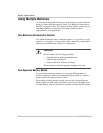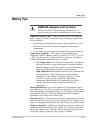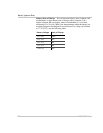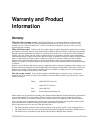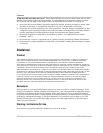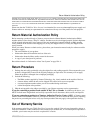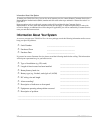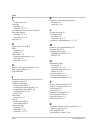
Battery Tips
975-0055-01-01 B–7
Battery Tips
Explosive/Corrosive Gases Lead-acid batteries may emit hydrogen
gases, oxygen, and sulfuric acid fumes when recharging. To reduce the
risk of explosion:
• Vent the battery compartment to prevent the accumulation of gases.
• Do not install electronic or electrical equipment in the battery
compartment.
• Do not smoke or use an open flame when working around batteries.
Temperature Sensitivity The capacity of lead-acid batteries is
temperature sensitive. Battery capacity is rated at 77 ºF (25 ºC). At 0 ºF
(–20 ºC), the Ah capacity is about half the rated capacity. You should
consider temperature when designing your system.
• Low Temperatures If extremely low temperatures are expected
where the inverter is going to be located, you should consider a
heated equipment room. If the system is located in an unheated
space, an insulated battery enclosure is recommended.
• High Temperatures The batteries should also be protected from
high temperatures. These can be caused by high ambient
temperatures, solar heating of the battery enclosure, or heat
released by a nearby engine or generator. High battery
temperatures shorten battery life and therefore you should
ventilate the enclosure and use shade and insulation as
appropriate.
Discharged Batteries Do not leave batteries in a discharged state for
more than a day or two. They will undergo a chemical process (sulfation)
that can permanently damage the battery. As well, batteries self-discharge
over a period of three to six months, and they should be recharged
periodically even if they are not being used.
Electrolyte Level If your batteries are not the “maintenance-free” type,
check the electrolyte level at least once a month. Excessive fluid loss is a
sign of overcharging. Replenish the electrolyte using only distilled water.
Battery Connections Connections to battery posts must be made with
permanent connectors that provide a reliable, low-resistance connection.
Do not use alligator clips. Clean the connections regularly and prevent
corrosion by using a protective spray coating or Vaseline.
WARNING: Explosion and fire hazard
Review “Precautions When Working With Batteries” on
page viii before you work with the batteries in your system.



